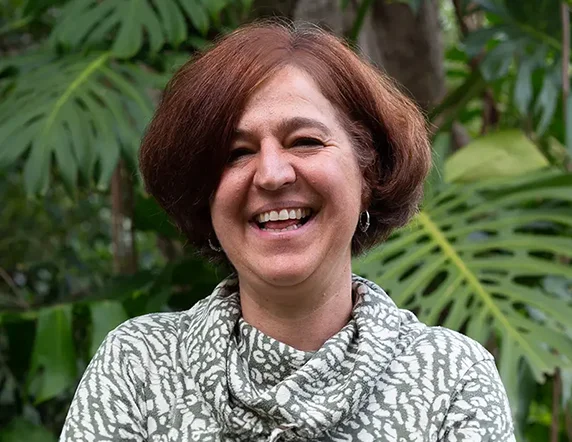
Field of research
- Social-ecological systems
- Resilience
- Sustainability transformations
- Social-ecological regime shifts
- Futures thinking and scenario planning
Prof. Reinette (Oonsie) Biggs
Co-Director, SARChI Chair
Profile
Prof Reinette (Oonsie) Biggs is the co-director of the Centre for Sustainability Transitions (CST) and holds a DST/NRF South African Chair (SARChl) in Social-Ecological Systems and Resilience. She is an NRF A-rated researcher and holds a joint appointment at the CST and the Stockholm Resilience Centre at Stockholm University in Sweden. She is an elected member of the Royal Society of South Africa as well as the Academy of Sciences of South Africa.
Oonsie co-chairs the science committee of the Program on Ecosystem Change and Society (PECS), one of the core global research programs of Future Earth, and leads the affiliated Southern African Program on Ecosystem Change and Society (SAPECS, www.sapecs.org), a network of researchers and practitioners working on social-ecological systems in the southern African region. She also serves on the Board of the Resilience Alliance and co-leads the transition team for establishing a new international Society for Social-Ecological Systems. Oonsie previously served on the Board of Directors for the Beijer Institute of Ecological Economics in Sweden, and on the South African Global Change Science Committee which serves as an advisor to the country’s national research foundation.
Oonsie’s research aims to advance theory and understanding of complex social-ecological systems, specifically how to build resilience to deal with uncertainty, surprise and ongoing environmental and social change. Through her research, Oonsie aims to develop practical theory, methods and insights that can contribute to facilitating transformations to more sustainable and just futures in Southern Africa, the African continent, and globally. Oonsie has published close to 100 peer-reviewed articles and 40 book chapters, and has served as lead editor for two books and guest editor for four special journal issues. She has supervised eight PhD candidates and 14 Master’s studies to completion.